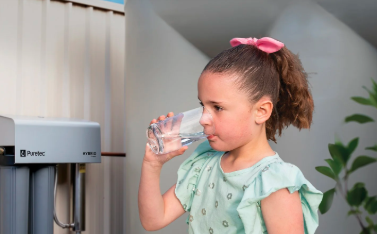Understanding your home’s specific water quality needs is key to selecting the right water purification system. Test your water for contaminants such as chlorine, heavy metals, and pesticides before purchasing a filtration system. You may also take your family size into account to determine the required filtration capacity for daily household use. Here’s how to choose a water purification system for your family’s needs:
Identify Your Water Quality Issues
Water quality varies depending on your location and water source. Municipal water supplies can contain chlorine or fluoride for public health purposes, while well water may have minerals like iron, calcium, and manganese.
Microbial contaminants, such as E. coli, giardia, or other harmful bacteria, are sometimes present in water. Older plumbing systems might cause heavy metals like lead or copper to leach into the water. Groundwater supplies in agricultural areas may contain pesticides and fertilizers.
Water clarity, taste, and odor can also change seasonally. Understanding these factors will help you better target your filtration needs.
Assess Your Household Water Usage
The size of your home and your water usage impacts the type and size of the water filter needed. A smaller, intermittent-use water purification system can be suitable for vacation homes or seasonal properties. Households with individuals who have compromised immunity may require more advanced water treatment solutions. Systems with expansion capabilities are ideal for growing families, as they can accommodate future increases in demand.
Evaluate Different Purification Technologies
Activated carbon filters effectively remove chlorine, volatile organic compounds, and bad taste. Reverse osmosis systems use semipermeable membranes to filter out contaminants with high efficiency.
Ultraviolet (UV) purification is an effective method for neutralizing bacteria, viruses, and other microorganisms using UV light. Ion exchange systems remove minerals like calcium and magnesium, softening the water.
The microscopic pores in some systems trap sediment, bacteria, and parasites. Distillation boils water and recondenses the steam into pure water. Multi-stage systems combine technologies like carbon filtration and UV treatment to deliver comprehensive results.
Assess the Installation Requirements
Point-of-use systems are installed directly on household fixtures, such as the kitchen sink or shower head. Whole-house filtration treats water at entry points before it reaches any household taps. This can protect your home’s appliances and plumbing from mineral damage and typically requires professional installation. Countertop units save on installation time but take up valuable kitchen space.
Under-sink models conserve counter space but require proper plumbing connections. Some systems may need new dedicated faucets or drain connections and could require professional installation. Portable filters, such as pitchers, are a practical option for renters who can’t modify existing plumbing.
Factor in Maintenance Needs
Regular filter replacements help make sure your purification system consistently produces clean water for your household. Reverse osmosis membranes may require periodic cleaning or replacement to maintain efficiency.
Sediment pre-filters can help protect more expensive components by trapping dirt and debris. Salt-based water softeners need regular refilling with appropriate conditioning minerals.
Some system components may require manual cleaning and disassembly, such as filter housings or distillation chambers. Maintenance timers or water volume monitors can provide automatic replacement reminders to simplify upkeep.
Install a Quality Water Purification System
A high-quality water purification system makes sure your household has access to clean, safe, and ideal-tasting water. It eliminates harmful substances such as chlorine, heavy metals, pesticides, and bacteria. When selecting a water filtration system, evaluate your water quality needs, preferred filtration technology, and installation requirements.
These factors help determine which system suits your home, whether it’s a point-of-use filter for drinking water or a whole-house system for comprehensive protection. Contact a filtration system provider today to purify your home’s water.


